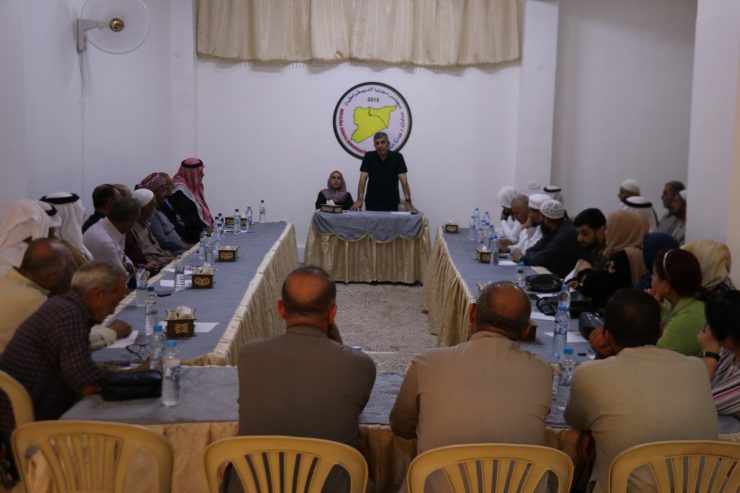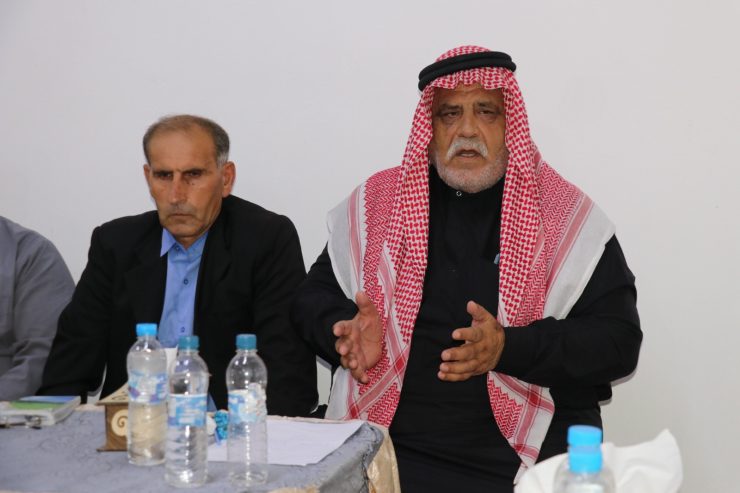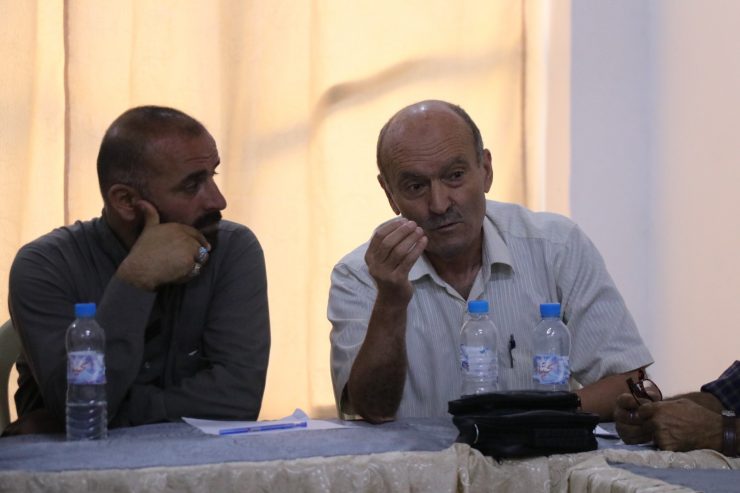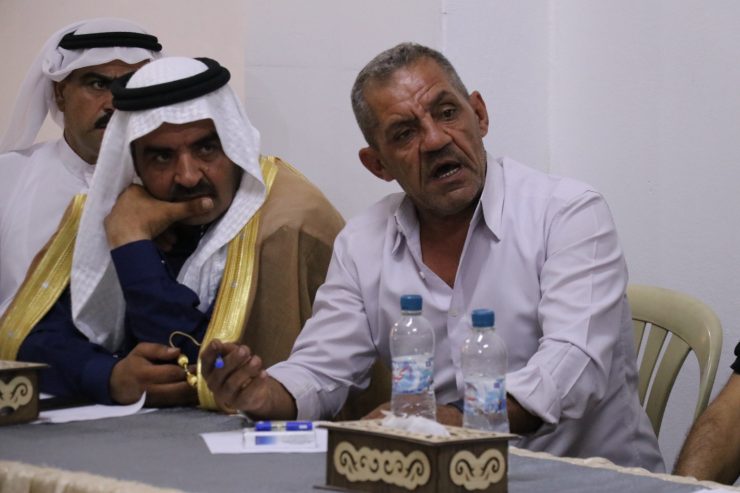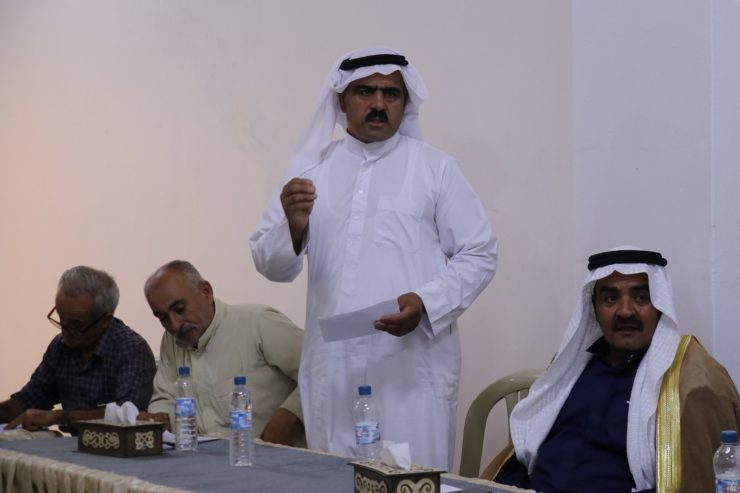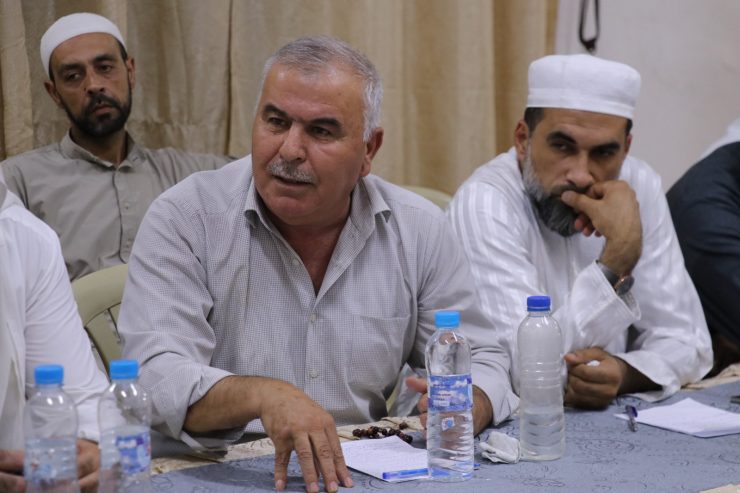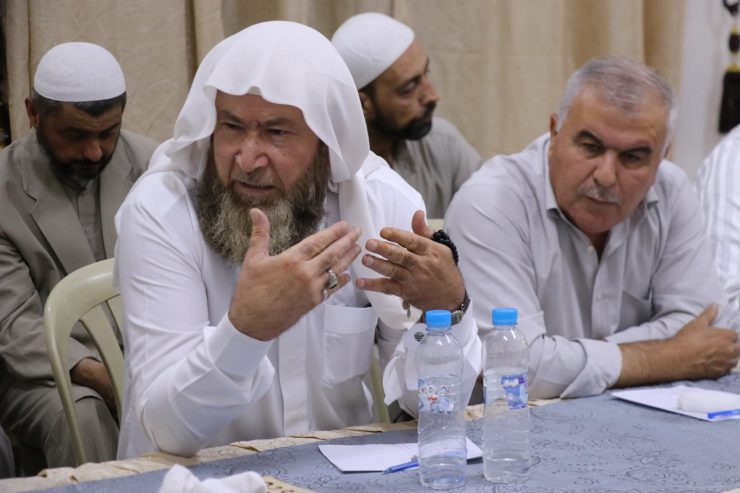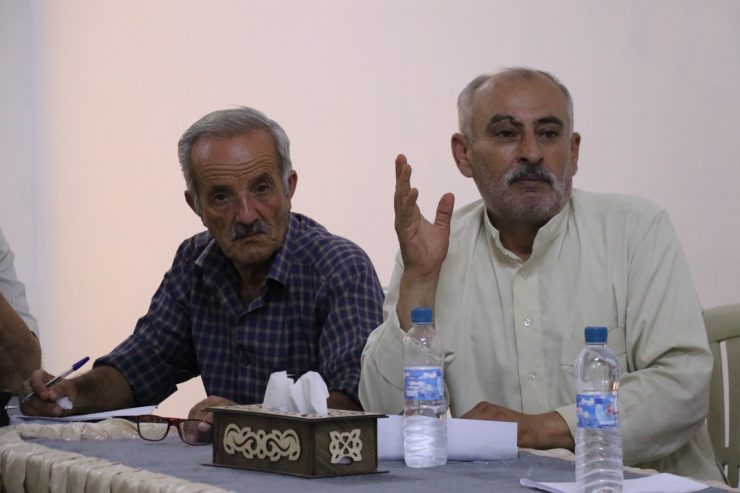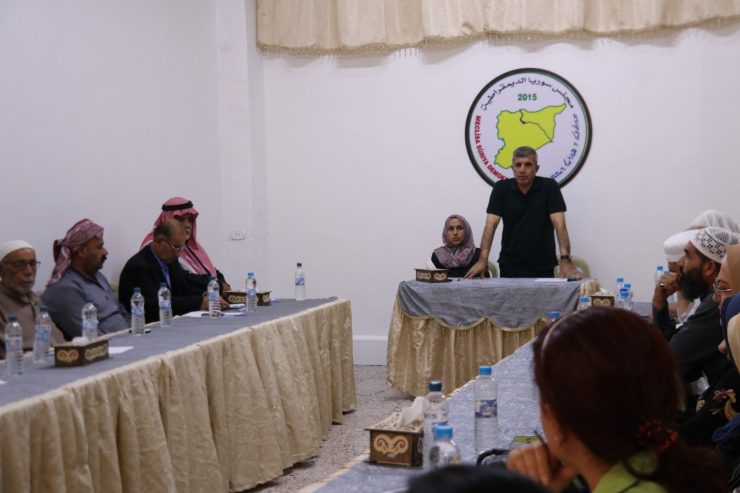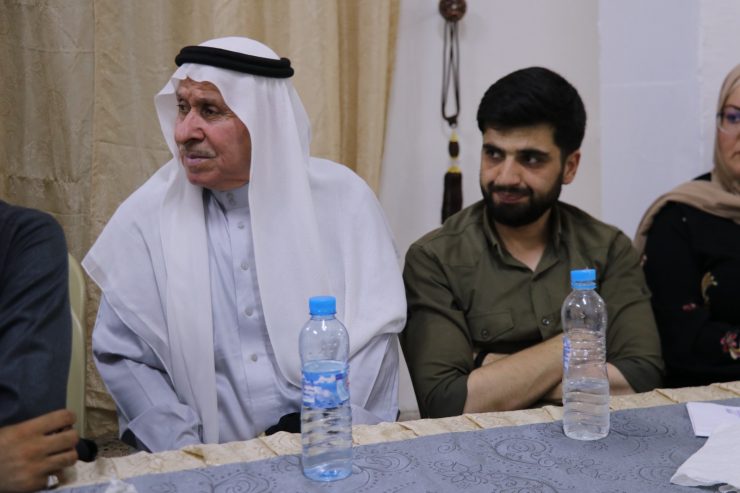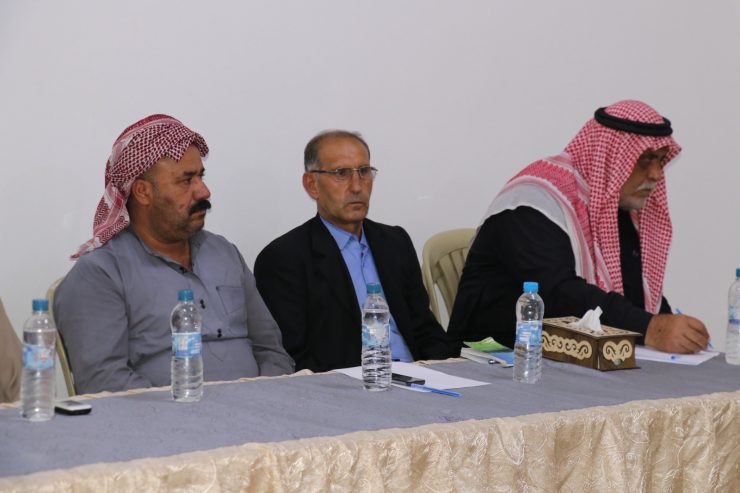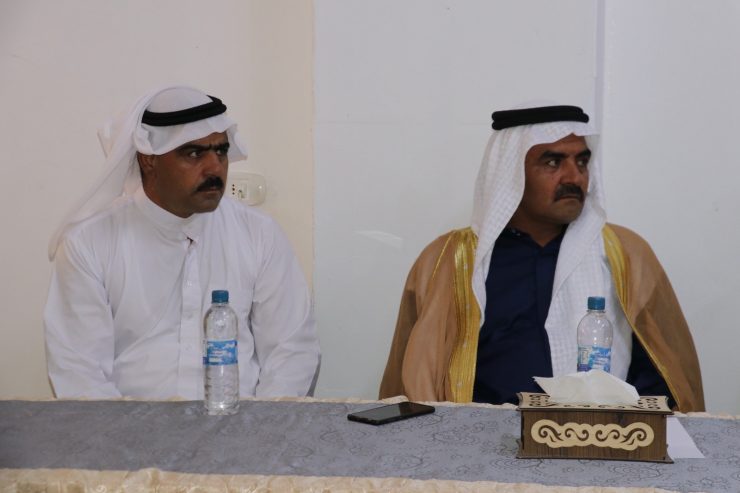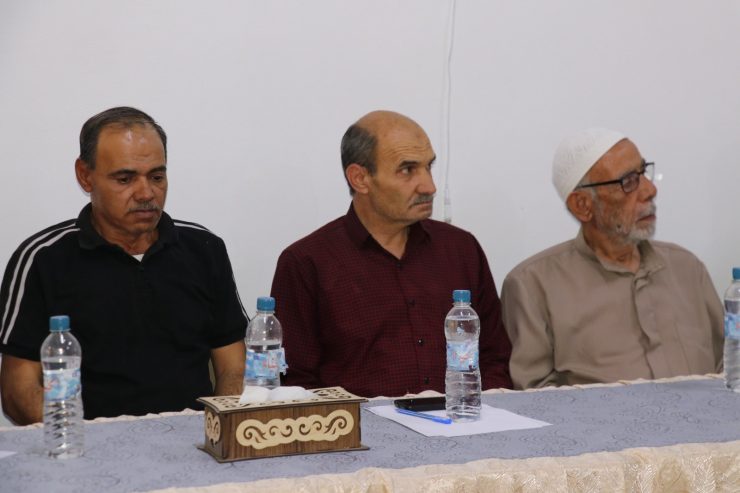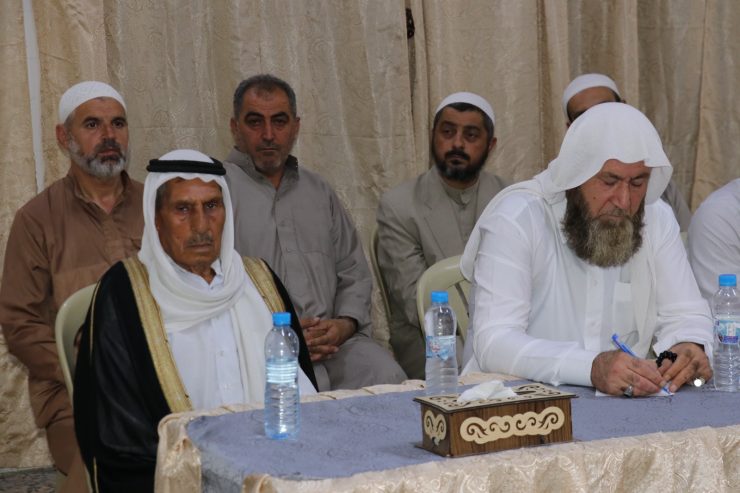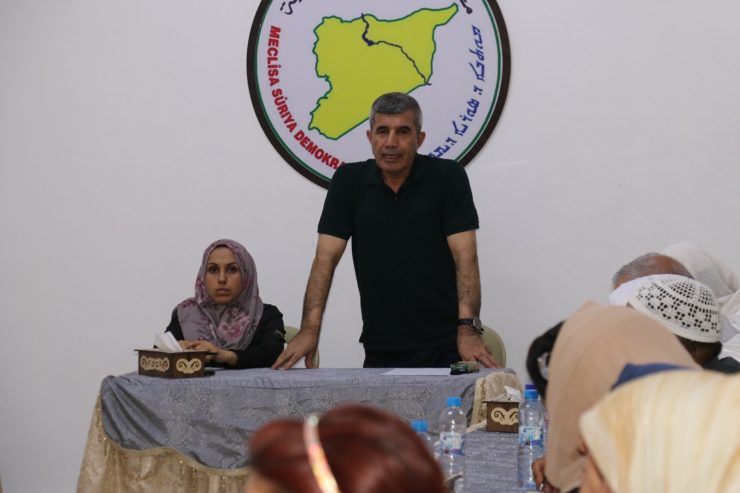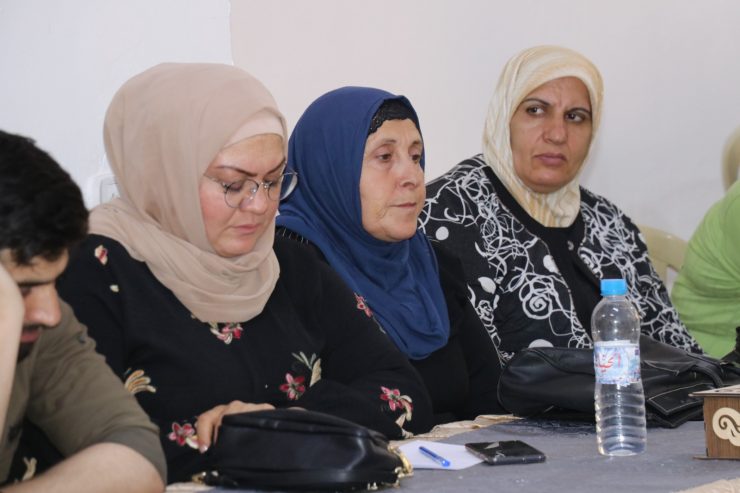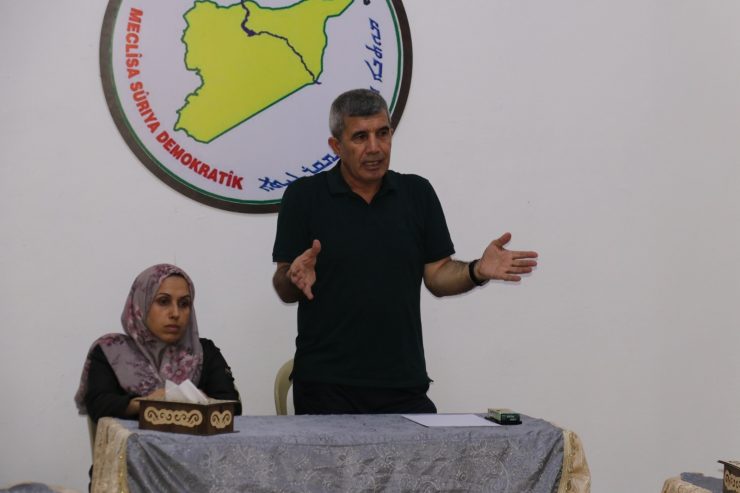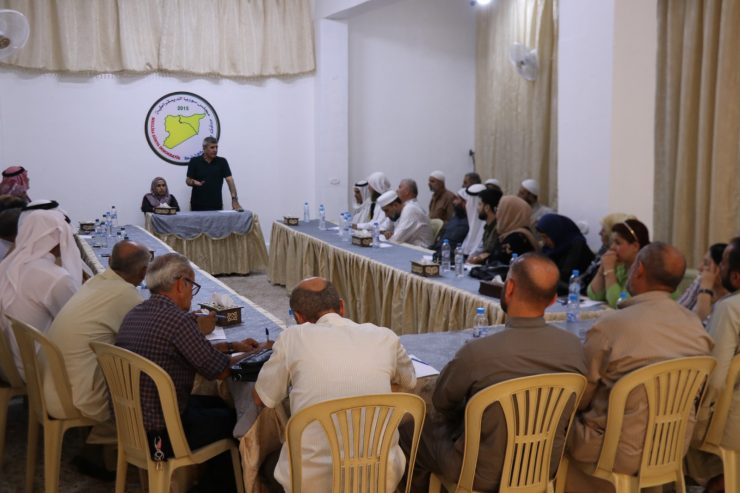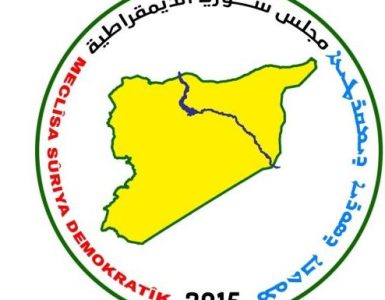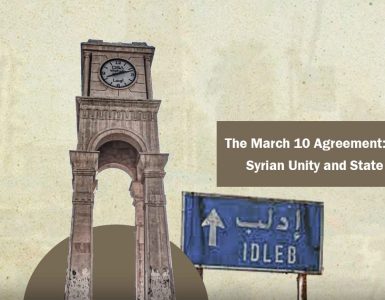On Monday, a dialogue seminar was held in the neighborhoods of Al-Sheikh Maqsood and Al-Ashrafiya in Aleppo, organized by the Relations Bureau of the Syrian Democratic Council in which a number of notables and religious figures focused discussed the role of tribes and religious figures in resolving the Syrian crisis.
The seminar which was held at the meeting hall of the Council in the neighborhood of Al-Sheikh Maqsood, northern Aleppo, was begun with an explanation of the historical role of Syrian tribes in mediating conflicts and preventing discord. It emphasized their importance in Syrian society. The Executive Council member and the Chairman of the Relations Bureau of the Syrian Democratic Council, Hassan Muhammed Ali, spoke on that matter.
Muhammed Ali praised the significant societal role played by these figures in preserving social cohesion among the Syrian people, strengthening national unity among various components, enhancing social ties, and maintaining domestic peace and security.
He also stressed the necessity of strengthening the internal front against the occupying plans, as the Turkish occupation is still a threat. He pointed out that Turkey has occupied vast areas in northern Syria, and its colonial expansionist projects include the complete occupation of Aleppo city and control over it.
The participants discussed the role of tribes and religious figures in resolving the crisis, touching on the overall political situation in Syria, and emphasizing the importance of finding a just and comprehensive resolution for the Syrian crisis while providing a suitable platform for the dialogue among all Syrians under the auspices of UN Resolution 2254.
During the discussions, Ahmed Abdelghani, one of the neighborhood notables, emphasized the importance of preserving Syria’s unity and independence, which can be achieved through the establishment of a democratic secular state that upholds human rights, individual freedoms, and public liberties, and believes in genuine partnership among all Syrian national and religious components, free from exclusionary and marginalizing policies.
Sheikh “Omar Al-Shami”, for his part, urged Syrians to unite and reject sectarianism, strengthen national unity inside Syria to combat corruption, and stand together to uplift the country.
During the discussions, Sheikh Ahmed Al-Quraysh, one of the notables of the Al-Bakara tribe, highlighted the need for a shared vision to activate the role of tribal notables in countering attempts of supporting discord and conspiracies against the people of the region by conspiring parties.
The Co-administrator of the Religious Affairs Foundation in Aleppo, Ali Al-Hassan, for his part, stressed the necessity of enhancing cooperation among the Syrian people’s components, as it is the best way to establish shared values and concepts of coexistence, which is the only method for maintaining domestic peace and social stability.
He also called for rejecting all forms of extremism and national and religious fanaticism in all its forms, while promoting concepts of tolerance, coexistence, and accepting others’ differences.
In conclusion, the participants reaffirmed the necessity of continuing such meetings and actively seeking for suitable conditions to launch an intra-Syrian national dialogue aimed at strengthening historical ties among the Syrian people, ultimately leading to holding a comprehensive national conference to find radical resolutions for the Syrian crisis.


